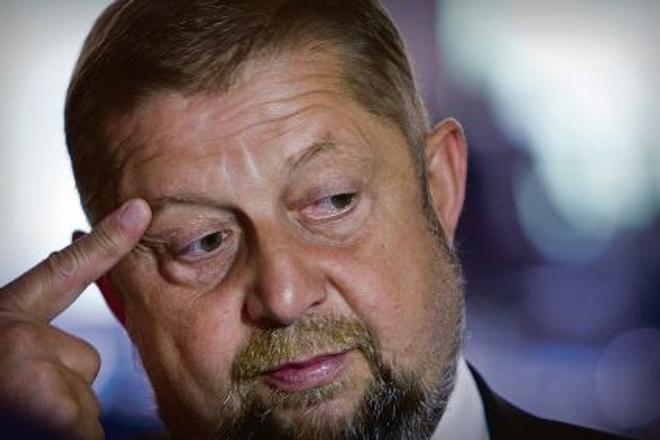ŠTEFAN Harabin, who earlier this year failed in his bid to get re-elected as Supreme Court president, is not ready to part from his influence over Slovakia’s judiciary and will run for a file-and-rank membership in the Judicial Council, which oversees the operation of the judiciary in the country. Harabin was proposed for the post in the council which he personally ran for five years by 10 judges of the penal collegium of the Supreme Court that he currently leads.
Harabin has been critical of the current composition of the Judicial Council dubbing it a “political advisory body of Justice Minister Tomáš Borec”. He says he is now running for the vacant post because the judges have asked him to do so.
“The calls of the judges were that only I am able to tell the truth and I am not afraid of anyone,” Harabin told the Sme daily on October 9.
A recently passed constitutional amendment, which divided the post of Supreme Court president from the position of Judicial Council boss as of September, has left one position in the council vacant. The council has 18 members. The president appoints three members, while the government and parliament send their three appointees to the Judicial Council each. Nine members are elected by the judges.
The election to the Judicial Council will be held on November 25 and Harabin’s challenger will be former member of the council Dušan Čimo, who was dismissed only one week before the key September 16 election of the Supreme Court president and the council’s boss.
The elections of the member of the Judicial Council will be a test of the condition of Slovakia’s judiciary, said Katarína Javorčíková of the association For an Open Judiciary, an independent judiciary initiative unifying judges who are critical of the performance of Harabin, as quoted by the SITA newswire.
“It will be a fight of principles,” said Javorčíková, adding that her group is not lobbying or speculating.
The initiative backs the candidacy of Čimo, elected in February 2012 by the rightist parties who is a long-time critic of Harabin, and considers his earlier recall from the council politically motivated.
“I am honoured that my colleagues trust me,” Čimo said, as quoted by Sme.
Candidacies for the vacant post in the council are accepted until October 13 while judicial associations, bar associations or at least 10 judges can propose the candidate. Yet, 1,400 judges will decide who will be their representative in the council.
Critics of Harabin, who was showered with criticism from political ethics watchdogs, activists and a number of judges for the way he ran the top court and for what they called his negative influence on the country’s judiciary, were relieved after the September 16 vote of the Judicial Council, locking the doors to Harabin’s eventual return to the top court.
The Judicial Council elected Supreme Court justice Jana Bajánková as its head while Daniela Švecová, a former deputy chairwoman of the Supreme Court, was picked to lead the Supreme Court, the post that Harabin vacated on June 22.
Harabin, however, argued all along that electing a new head for the Supreme Court would be unconstitutional, suggesting that the Judicial Council in its 17-member form does not exist.
Now the two-time Supreme Court boss argues that the cardinal reason why he will run for the post is argumentation of judges who say that there is a high risk that manipulation and fraud would appear during police screenings of the judges introduced by the recent amendment to the constitution.
“For example, there was an obvious election fraud during the election of the chair, which no one wants to investigate,” Harabin said, as quoted by the TASR newswire.
Čimo’s dismissal
One week ahead of the September 16 election, parliament’s Deputy Speaker Jana Laššáková proposed the dismissal of Čimo, which was passed with the ruling Smer party’s support, while the opposition ignored the vote. The deputies replaced him with the head of the district court in Spišská Nová Ves, Ján Slovinský. Neither Laššáková nor other Smer MPs have offered an explanation for this step.
Čimo has not refuted claims that political motivation could have been the reason for his dismissal, which was believed to have shifted the balance of power in the council before the elections.
The opposition criticised Čimo’s dismissal, saying that it had just 24 hours to propose a new candidate, while Slovinský signed his agreement with the candidacy before the opposition even knew that Smer wanted to remove Čimo.
Opposition MPs further called the move a deliberate effort by Smer to secure votes for the election for the new Supreme Court and Judicial Council head, SITA wrote.



 Štefan Harabin (source: SME)
Štefan Harabin (source: SME)